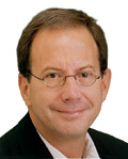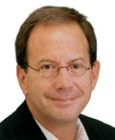
ADHD
Depression or ADHD, Chicken or Egg?
Don't confuse ADHD in Depression's clothing
Posted March 7, 2011
Recently I have seen a number of clients/patients who were highly capable, smart and at times brilliant, but were functioning poorly in their careers or their lives. What they each had in common were:
- they appeared quite depressed and down
- they had a very strong obsessive compulsive personality and being in control was very important to them
- they had been on several anti-depressants which offered only mild relief and in several cases seemed to make them feel worse
- they had trouble controlling their racing, ruminative thoughts
- they demonstrated an outward veneer of irritability, negativity and cynicism covering deep feelings of discouragement
- although they had used drugs or alcohol during college more for relief than to get high, they weren't using them now (i.e. they didn't currently have a complicating drug or alcohol abuse problem)
At first blush these people certainly appeared depressed and I could see why they may have been placed on anti-depressants, especially by highly analytical, left brain dominant psychopharmacologists. After all, they had a number of the classical symptoms of depression including lack of motivation, negative mood, loss of interest in pleasurable activities and even some of the sleep and/or appetite symptoms (either too much or too little of either) also associated with depression. I could also see that the last thing psychopharmacologists would want to put a depressed person with racing thoughts on would be a stimulant, out of fear of triggering a manic episode.
However, as I got to know these people and use some empathy to understand and "feel" how they were feeling underneath their external behavior and mood, it seemed that something else was going on. Rather than being depressed, it appeared that these people might actually have ADHD (as overdiagnosed as that condition might be) and that their obsessive compulsive personalities were daily fighting a losing battle to control or at least override all the distractability and racing thoughts. The net result of this internal mental battle was that they were: a) mentally exhausted; b) very unproductive which led them to feel depressed; c) unmotivated; d) highly irritable most likely as a result of their exhaustion, frustration at nothing having helped them and their negativity regarding believing that anything could help them.
With some trepidation I tried them on what is known as a "stimulant challenge." That is where I gave them a single dose of a short acting stimulant such as ritalin, dexedrine or Adderall and then watched for their response. If they became more agitated with no increased productivity, it was possibly anxiety or maybe even bipolar disorder being slightly triggered; if they became lighter and more productive, that could be either depression or ADHD; if they became calmer, centered and more deliberate in their action, that leaned more towards ADHD as the primary problem with depression about being unproductive being secondary to the untreated ADHD. In each case the latter response occurred.*
In one instance, one of my patients called a few hours after taking the "stimulant challenge" and was crying. I asked him what was wrong. He told me, "Nothing's wrong. I'm crying because I feel normal. I thought normal was for everyone else. I feel as if the war I've been fighting all my life and that I felt I was doomed to fight forever is over . I also feel that what has always seemed impossible has just shifted over to possible." I think what he meant to say was that he felt hopeful and was overwhelmed by it.
* As a psychopharmacologic footnote, I have gone on to treat these people with the non-stimulant medications for ADHD (including Strattera and Intuniv) which seemed much better tolerated than pure stimulant meds in the long run.

